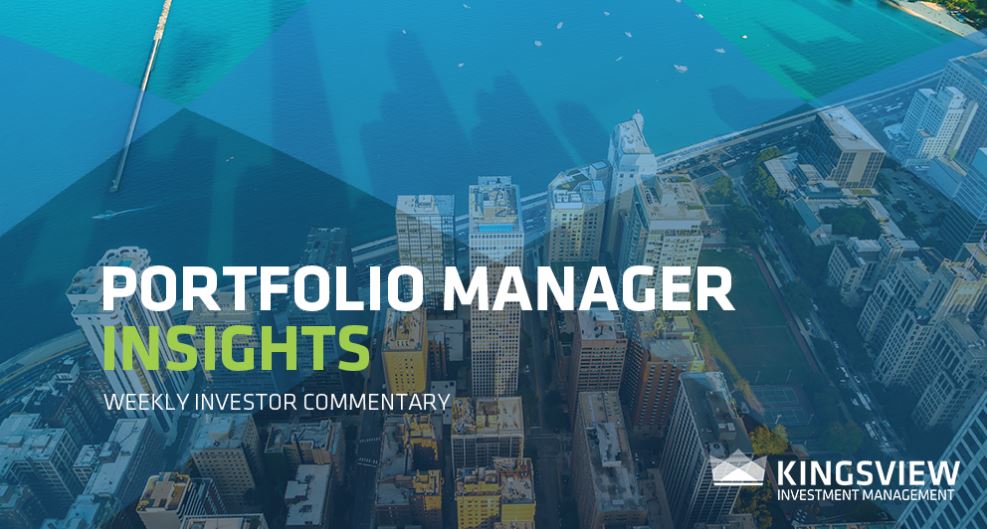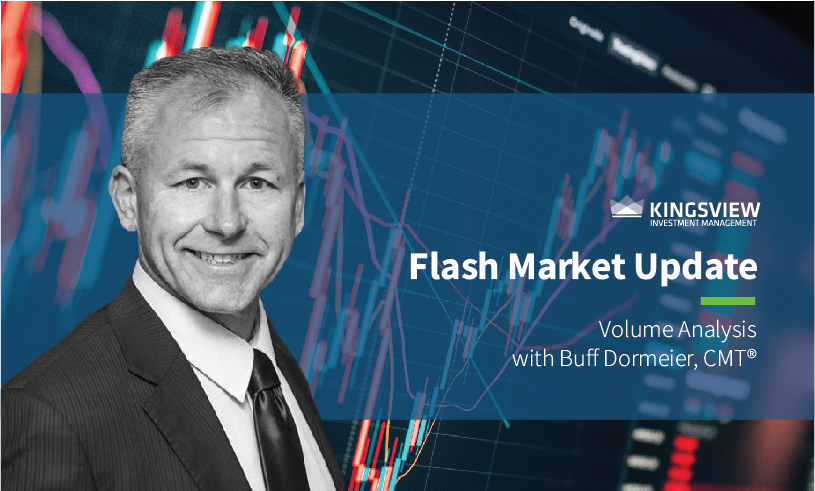Kingsview CIO Scott Martin On Fox Business News – Your World with Cavuto 7.26.24

Click here to listen to the full interview.
NEIL CAVUTO: You’ve probably heard of the Consumer Price Index, the Producer Price Index, and the Retail Trend Index. There’s one index that the Fed follows more closely and loves more than any other, and that’s something called Personal Consumption Expenditures. It’s a mouthful and abbreviated as PCE, but it is very important to Jerome Powell. He says it’s the best read of all on trends in inflation, and the trend was good in this latest report, as it was on the so-called core front—that’s when you exclude food and energy. Of course, you and I aren’t so lucky to exclude food and energy costs at home, but the fact of the matter is both seem to be stable and pave the way for a likely cut in interest rates, maybe in September. Many others are saying possibly two more cuts to go with that. That might be a leap, but the market’s taking a leap on that today. Scott Martin, following it closely, the Kingsview Asset Management CIO and Fox News contributor. Scott, why is this report loved more than any other by the Fed? That part I don’t get.
SCOTT MARTIN: Yes, and food and energy too, Neil, are my life, so I agree that’s a tough part of this index. But one reason the Fed likes this index so much more than others is because it’s very specific. It breaks out a lot of neat things when it comes to shelter, rent, and things like that, which some of the other indexes kind of mix together. So the Fed follows this one because it actually tracks, I believe, Neil, more closely to the true inflation numbers that are really out there compared to some of the stuff that you hear like PPI and CPI and all those other fun abbreviations. Here’s the takeaway today, though, my friend, I don’t think this number is soft enough. I don’t think it’s quite enough to push the Fed to that rate cut that everybody so dearly wants, like in a PG-13 movie where the guy gets the girl and the Fed makes the cut. I just don’t see it yet because the Fed is getting closer and closer to the election. Neil, we’ve got three meetings left in the year—September, November, and December. They’re in play. I think the Fed stays mute for the rest of the year and just leaves rates where they are.
NEIL CAVUTO: You might be right, but they have been known to move in election years. So there is that precedent and I think some of them, not all, but some of them are beginning to fear that this slowdown could pick up steam. We’re seeing it at a lot of airlines that are seeing passengers cut back on things and future bookings. We’re seeing it in some retail sales, not all, but the first hints of that. We even saw it with Ford, which was clobbered yesterday and dinged a little bit today because it’s having a devil of a time selling cars, let alone some of these electric vehicles. So maybe they feel that alone means we can’t have egg on our face and have a recession on our hands if we don’t move. Now, what do you think?
SCOTT MARTIN: Very true. And if you look at years past, Neil, when we have cut rates, there’s usually something terribly wrong, and usually when the Fed cuts rates too, my friend, as you noted, it’s usually too late. The house, the cars, and the horse are already out of the barn, so it’s already too late. So the Fed has been late to the game on that. But I’ll tell you something else, when we see those things tail off—you mentioned personal consumption expenditures and things like that—when we see consumption come back, when we see it go down, when we see flights being taken less, that’s also coming off recent highs. We’ve seen prices come down, which is likely to happen because we had such an overabundance of price increases over the last couple of years. So that could be just a general deflationary kind of situation that should level off as well and make the Fed right in staying put here.
NEIL CAVUTO: There was a great rotation this past week, today notwithstanding, out of the high-flying technology stocks that have disproportionately lifted the S&P 500 and certainly sent the NASDAQ soaring. This is slowly continuing, a little less today, but what do you make of that and is it something we should worry about?
SCOTT MARTIN: Nothing to worry about, I don’t think. What we should worry about is if you don’t buy in on some of this weakness. We’ve been telling a lot of our clients, Neil, when you see these pullbacks in Nvidia, when you see these pullbacks in, my goodness, CrowdStrike, Amazon, we have Facebook up there. Google had pretty lousy earnings the other day and fell off about 10%. Those are opportunities for the long-term investor. People that are out there looking to take more positions in their accounts should buy in. You don’t run from these sell-offs; you actually buy into them. Sell when the markets go up, don’t do the reverse and buy high and sell low. Actually buy when the market is fearful and sell when the market is greedy.
NEIL CAVUTO: Got you, my friend. Scott Martin, always good catching up with you on this and so much more.



